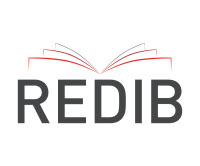THE BLACK MAN IN CONTEMPORARY POTIGUAR LITERATURE
DOI:
https://doi.org/10.21680/1517-7874.2022v24n2ID27328Abstract
This article is the result of a research project that aimed to investigate the images of the black man in contemporary Potiguar Literature. As the studies on the poetic production of Rio Grande do Norte are more focused on the early twentieth century and modernity, this article analyzes, from the theoretical, literary and cultural foundations of the black figure in contemporaneity, the images raised in the Potiguar poetry of the early years of the XXI century. This work brings a temporal cut between the years 2000 and 2021 focusing on three writers: Alexandre Alves, Drika Duarte and Helena Monteiro. The selection of poems took into consideration two criteria: i) the significant poetic production in volume and/or critical reception and; ii) the authorship and/or black theme. As theoretical support, the article uses the concept of Afro-descendant Literature, by Duarte (2002), the concept of Supraregional Literature, by Arendt (2011), and the concept of Imagology, by Ribeiro (2005). Our hypothesis is that poetic writing, from 2000 to 2020 in Rio Grande do Norte, is succumbed by the notion of regional as a natural geographical space and by literary criticism. Although identity policies have been fostered in the time frame in question, the black man image is minimized in the Potiguar poetic production, and its representation occurs through dissonant voices, and dispersed, in the Potiguar cultural and literary scenario.
Downloads
Downloads
Published
How to Cite
Issue
Section
License
Copyright (c) 2022 Revista do GELNE

This work is licensed under a Creative Commons Attribution-NonCommercial-ShareAlike 4.0 International License.

Este trabalho foi licenciado com uma Licença Creative Commons - Atribuição - NãoComercial - CompartilhaIgual 3.0 Não Adaptada.

 Português (Brasil)
Português (Brasil) English
English Español (España)
Español (España)









.jpg)




